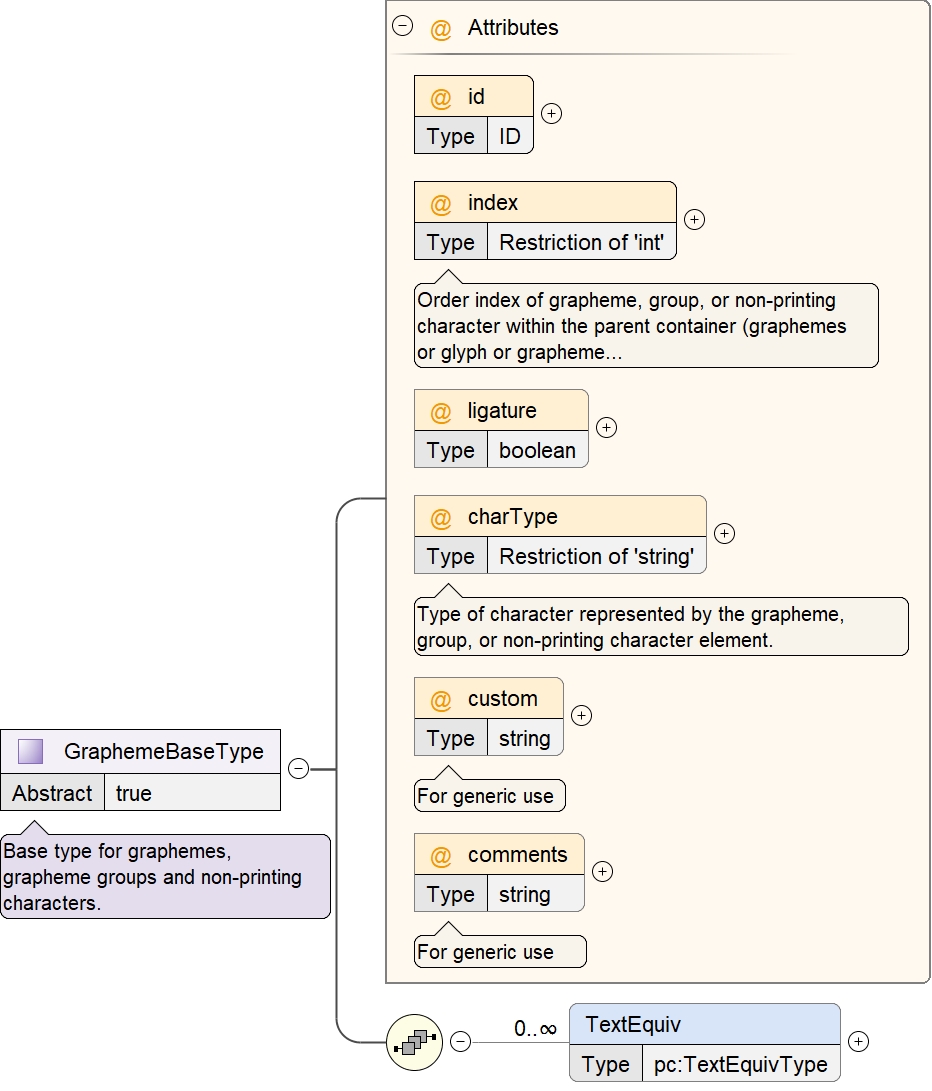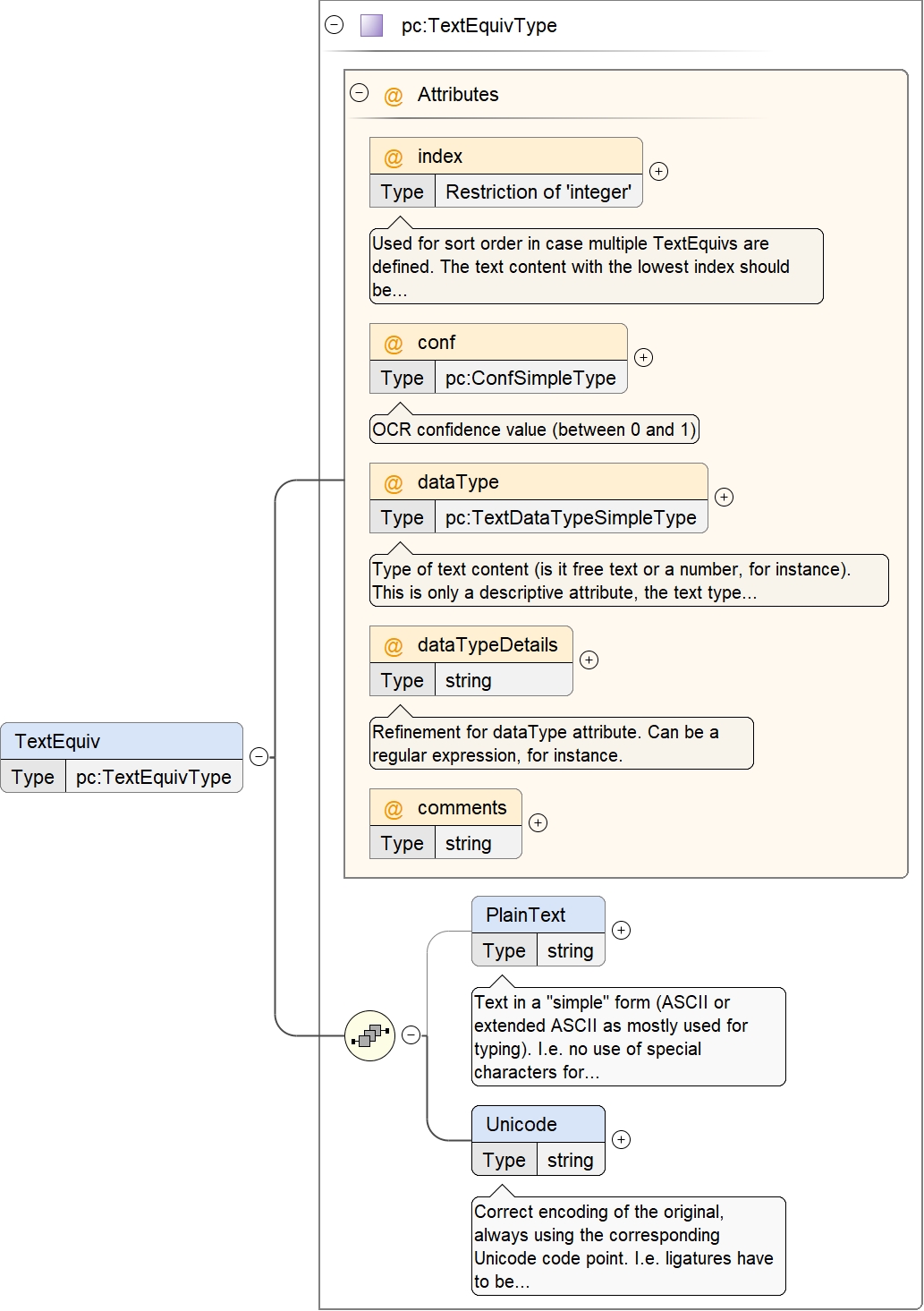Complex Type pc:GraphemeBaseType
| Namespace | http://schema.primaresearch.org/PAGE/gts/pagecontent/2019-07-15 | |||||||||||||||||||||||||||||||||
| Annotations |
|
|||||||||||||||||||||||||||||||||
| Diagram |
 |
|||||||||||||||||||||||||||||||||
| Properties |
|
|||||||||||||||||||||||||||||||||
| Used by | ||||||||||||||||||||||||||||||||||
| Model | Element pc:GraphemeBaseType / pc:TextEquiv | |||||||||||||||||||||||||||||||||
| Children | Element pc:GraphemeBaseType / pc:TextEquiv | |||||||||||||||||||||||||||||||||
| Attributes |
|
|||||||||||||||||||||||||||||||||
| Source |
|
|||||||||||||||||||||||||||||||||
Attribute pc:GraphemeBaseType / @id
| Namespace | No namespace | ||
| Type | ID | ||
| Properties |
|
||
| Used by |
|
||
| Source |
|
Attribute pc:GraphemeBaseType / @index
| Namespace | No namespace | |||
| Annotations |
|
|||
| Type | restriction of int | |||
| Properties |
|
|||
| Facets |
|
|||
| Used by |
|
|||
| Source |
|
Attribute pc:GraphemeBaseType / @ligature
| Namespace | No namespace | ||
| Type | boolean | ||
| Properties |
|
||
| Used by |
|
||
| Source |
|
Attribute pc:GraphemeBaseType / @charType
| Namespace | No namespace | ||||||
| Annotations |
|
||||||
| Type | restriction of string | ||||||
| Properties |
|
||||||
| Facets |
|
||||||
| Used by |
|
||||||
| Source |
|
Attribute pc:GraphemeBaseType / @custom
| Namespace | No namespace | ||
| Annotations |
|
||
| Type | string | ||
| Properties |
|
||
| Used by |
|
||
| Source |
|
Attribute pc:GraphemeBaseType / @comments
| Namespace | No namespace | ||
| Annotations |
|
||
| Type | string | ||
| Properties |
|
||
| Used by |
|
||
| Source |
|
Element pc:GraphemeBaseType / pc:TextEquiv
| Namespace | http://schema.primaresearch.org/PAGE/gts/pagecontent/2019-07-15 | ||||||||||||||||||||||||||||||
| Diagram |
 |
||||||||||||||||||||||||||||||
| Type | Complex Type pc:TextEquivType | ||||||||||||||||||||||||||||||
| Properties |
|
||||||||||||||||||||||||||||||
| Model | Element pc:TextEquivType / pc:PlainText , Element pc:TextEquivType / pc:Unicode | ||||||||||||||||||||||||||||||
| Children | Element pc:TextEquivType / pc:PlainText, Element pc:TextEquivType / pc:Unicode | ||||||||||||||||||||||||||||||
| Instance |
|
||||||||||||||||||||||||||||||
| Attributes |
|
||||||||||||||||||||||||||||||
| Source |
|
||||||||||||||||||||||||||||||
